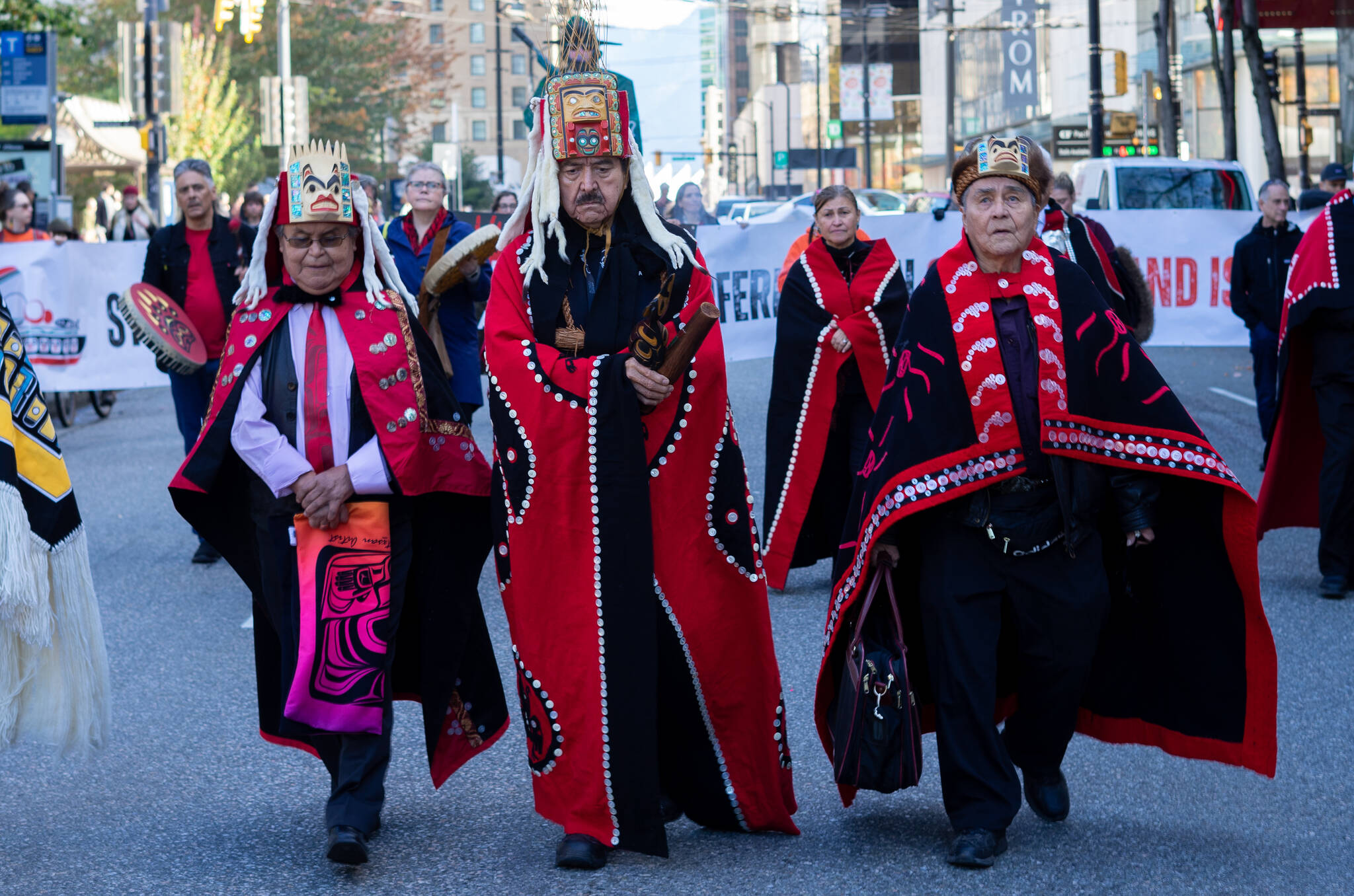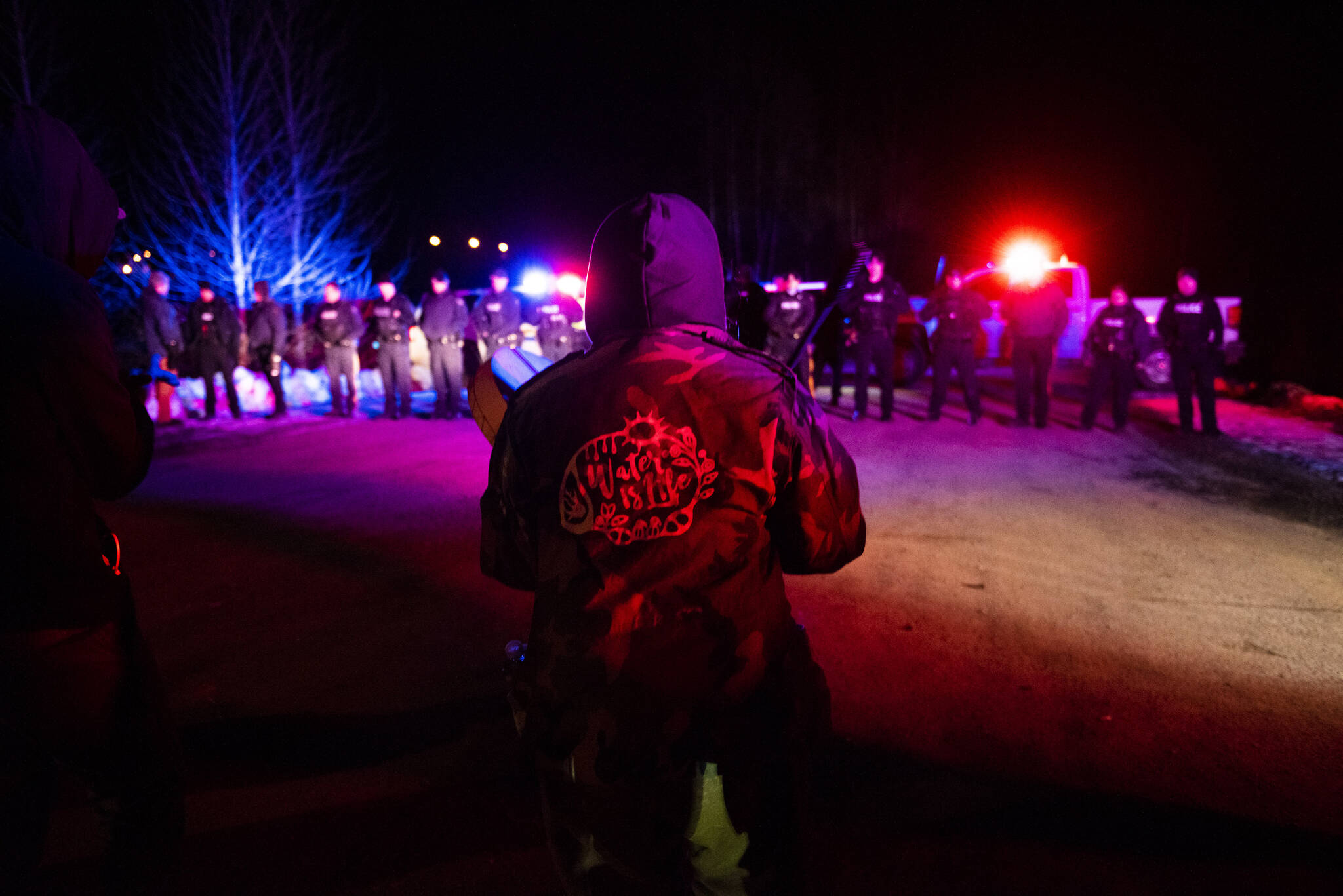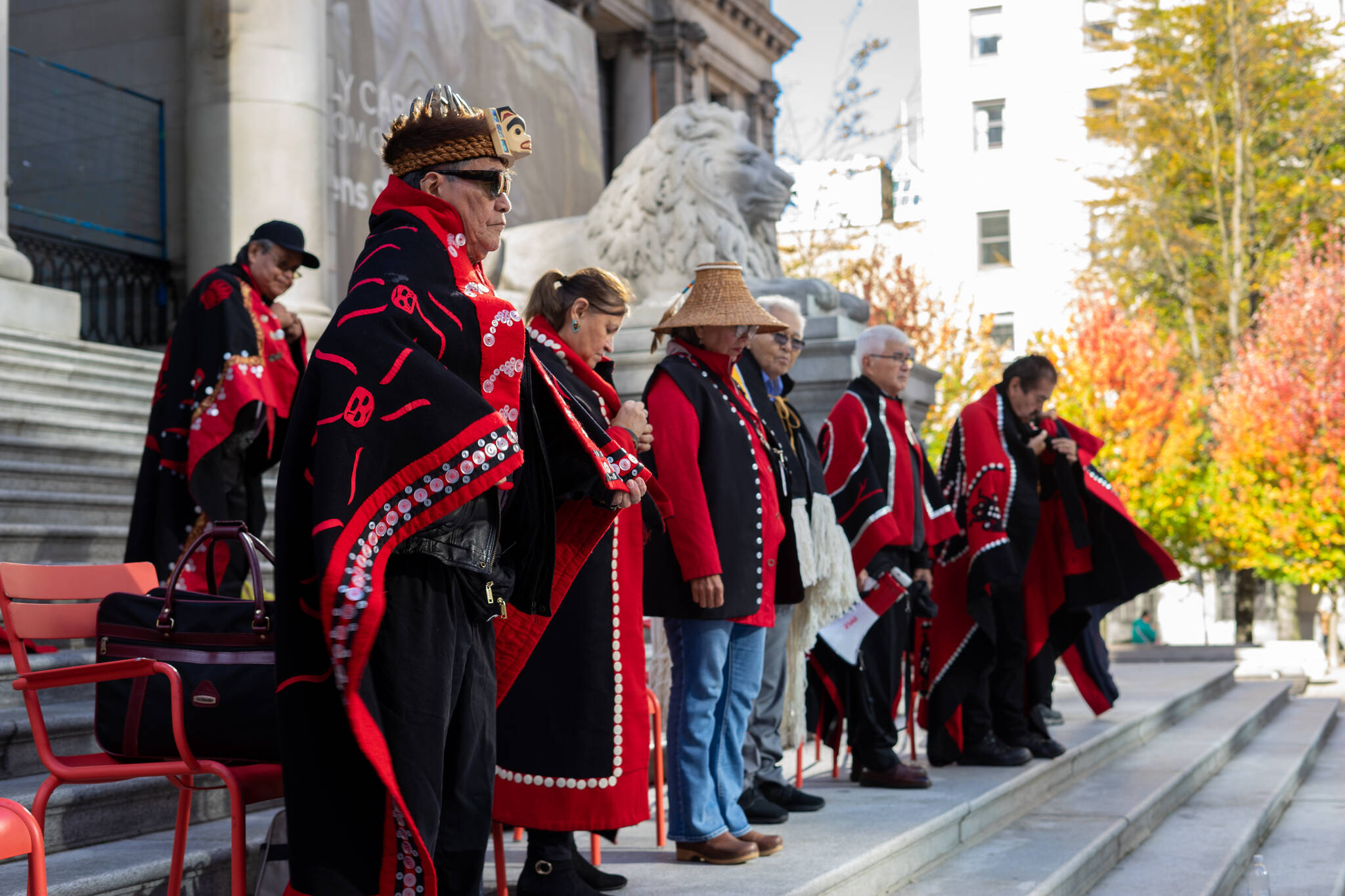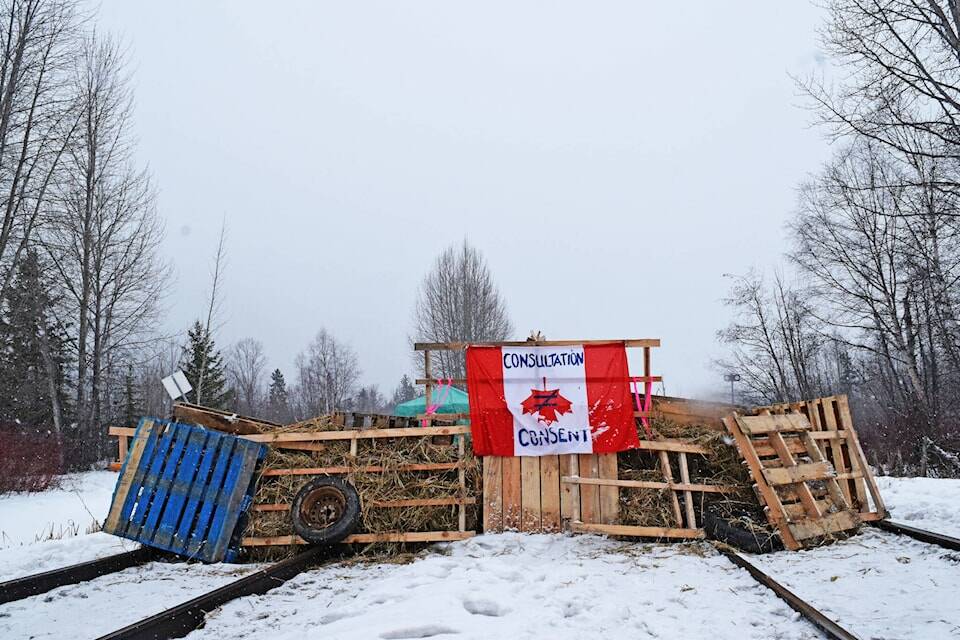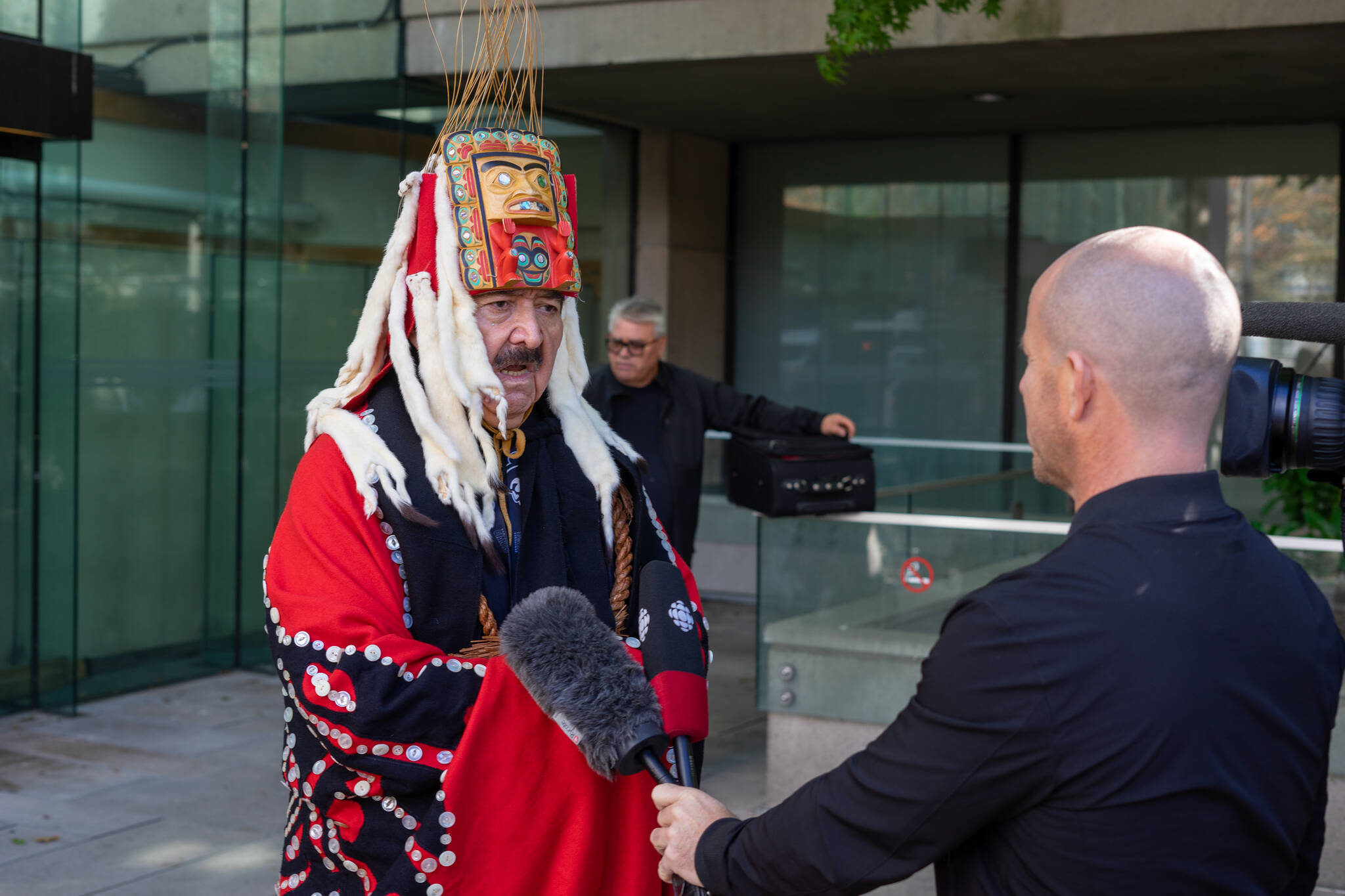Gitxsan hereditary chiefs recently marched from the Vancouver Art Gallery to the provincial courthouse in Vancouver, advocating for the disbandment of the RCMP’s task force focused on resource projects such as the Coastal GasLink pipeline.
Hereditary chief Gwiiyeehl (Brian Williams) is asking the federal government to agree to a meeting so both parties can discuss the C-IRG unit (Community-Industry Response Group) and related matters “peacefully.”
Williams is asking the RCMP and industry to respect their lhiem — a term that translates to “territory” in English. Gitxsan land is unceded as it was never surrendered or sold to the government in a treaty or by another legal mechanism.
Currently, Gitxsan land is a passing point for industry workers, specifically those in the forestry sector and resource extraction.
“We don’t want them on our lhiem, we don’t want them on our 35,000 square kilometres. Stay out,” said Williams.
READ MORE: Chiefs ban RCMP’s ‘militarized’ squadron from Gitxsan lands
During the Art Gallery demonstration Wednesday (Oct. 11), Gitxsan chiefs were dressed in full regalia, and carried banners stating “Stop Supreme Court Interference” and “Stop war on Indigenous land defenders,” referencing the court’s injunctions against opponents of the Coastal GasLink pipeline project. This included an injunction against Gitxsan members who blockaded the railroad tracks in New Hazelton in February 2020 in solidarity with the Witsuwit’en Nation.
Williams said the Vancouver demonstration was peaceful and well-received by the public.
“We blocked the street for about 10 minutes. It was safe. No one really honked at us or disagreed with us,” he said.
The Civilian Review and Complaints Commission for the RCMP announced earlier this year it was launching an investigation into the C-IRG.
“The systemic investigation will identify the extent to which C–IRG’s operations and actions meet, reflect, consider or are consistent with the standards and expectations set by Bill C-15, An Act respecting the United Nations Declaration on the Rights of Indigenous Peoples (UNDRIP), the British Columbia Declaration on the Rights of Indigenous Peoples Act (DRIPA) and the calls for justice from the Missing and Murdered Indigenous Women and Girls Inquiry (MMIWG),” the federal government said in a statement at the time.
Some members of the Witsuwitʼen Nation have filed a civil suit against C-IRG, alleging police misconduct during the Coastal Gas Link protests.
The group is also being sued by The Narwhal and photojournalist Amber Bracken for her arrest at an anti-pipeline encampment near Houston where she was on assignment for the online news magazine.
READ MORE: RCMP dispute photojournalist’s B.C. pipeline protest arrest account
The Coastal GasLink project, which is nearing completion, saw the deployment of the C-IRG task force on multiple occasions. Over the past three years, police have arrested numerous protesters.
In an email, Staff-Sgt. Kris Clark, a senior spokesperson for the RCMP, said deploying the C-IRG is a “last resort” and deploying the group during the Coastal GasLink protests was a necessity.
According to the RCMP, an “anarchist” group deemed to be unassociated with the Witsuwitʼen Nation, committed acts of terrorism, threatening workers and destroying industrial equipment with an axe.
“When protests are peaceful, lawful and safe, there is no need for C-IRG intervention,” said Clark.
But Williams said the C-IRG has been deployed on Gitxsan land during peaceful protests such as the 2020 blockade, and that the historical context of the RCMP’s treatment of Gitxsan members, including three deaths at the hands of RCMP officers in the last 50 years, prompts “fear” among his people.
“They (C-IRG) came out in full fatigue. They came out with a couple of busloads of militant RCMP. And it looks like they’re ready to shoot. It’s scary,” said Williams.
“They have drones, helicopters, high-tech equipment we don’t have. They come in full attire, bulletproof vests, dogs, helicopters. And with rifles ready to kill somebody.”
Clark said the response to C-IRG is mostly “sensationalized,” and that the C-IRG group itself has not caused any “physical injuries as a result of any enforcement actions to date.”
It has, however, also received public criticism for video footage of officers shouting racial slurs at protesters, as well as using what some believe to be excessive force on people protesting old-growth logging at Fairy Creek.
READ MORE: RCMP do not agree to abide by Gitxsan chiefs’ ban on ‘militarized squadron’
